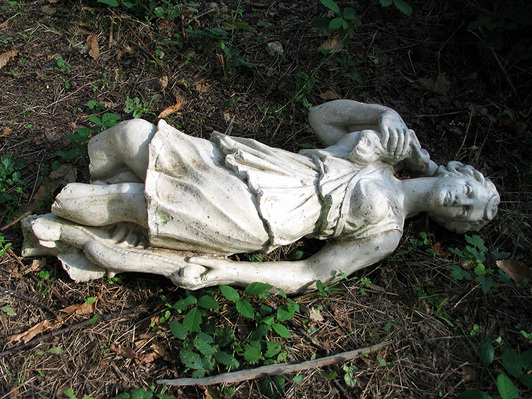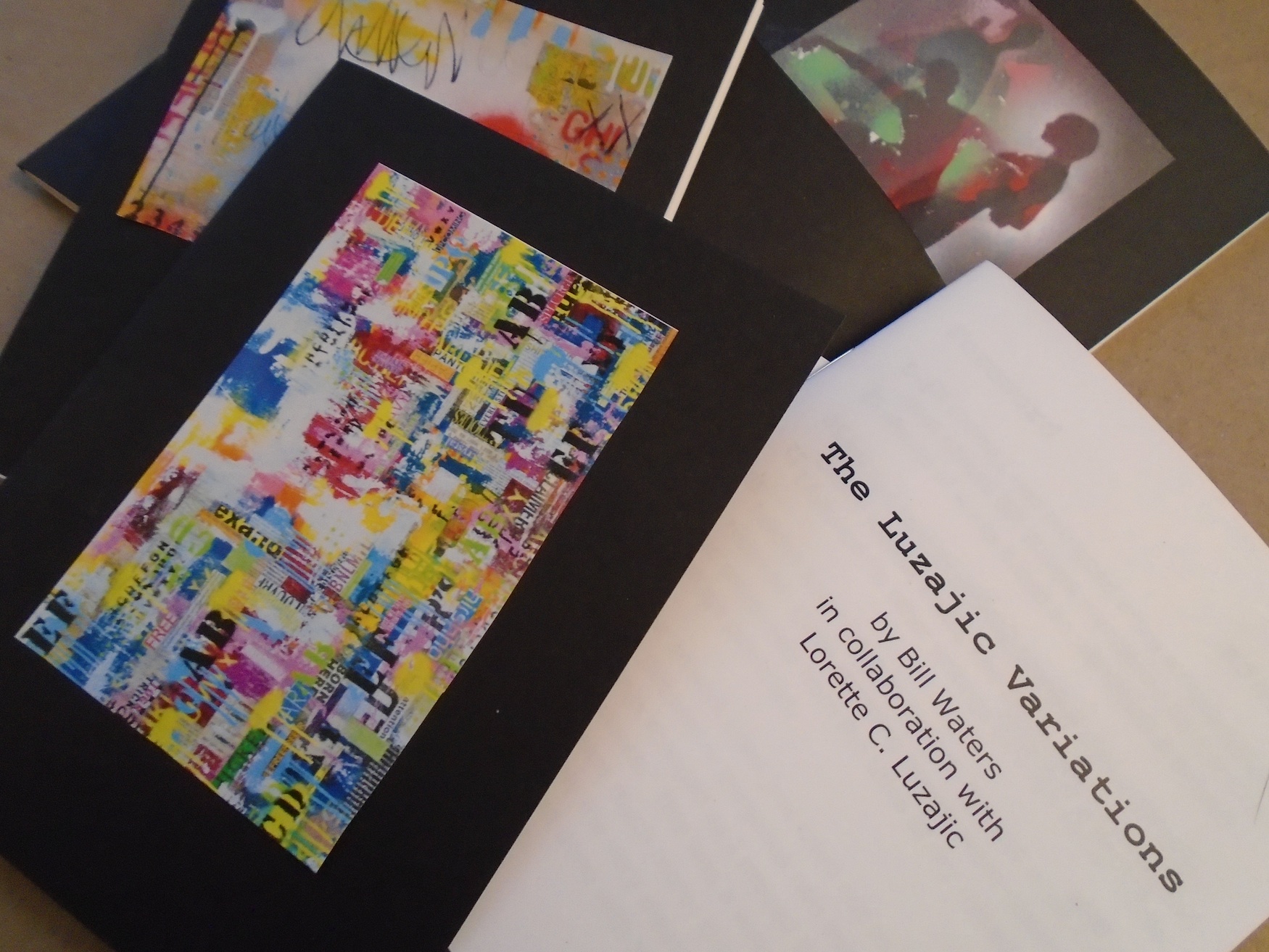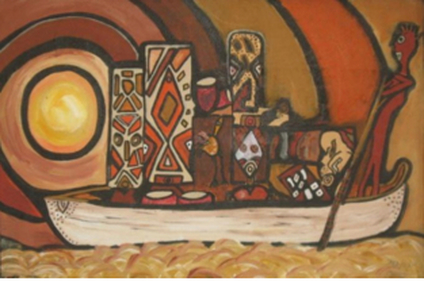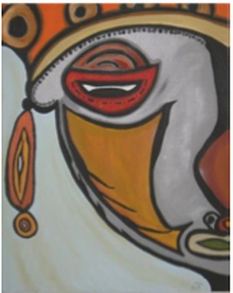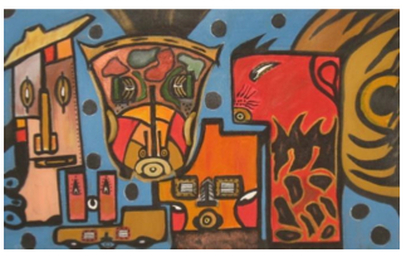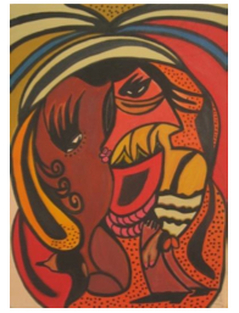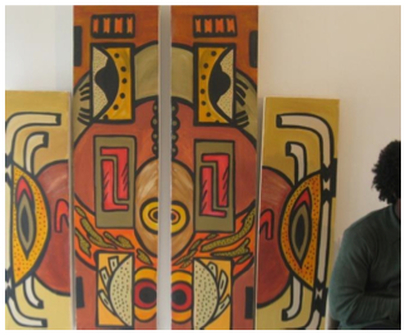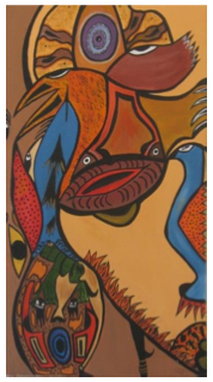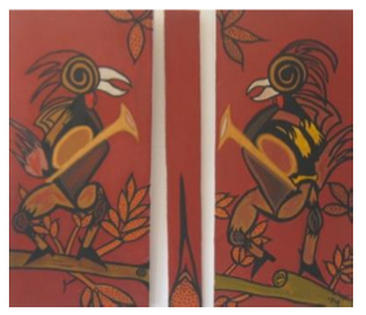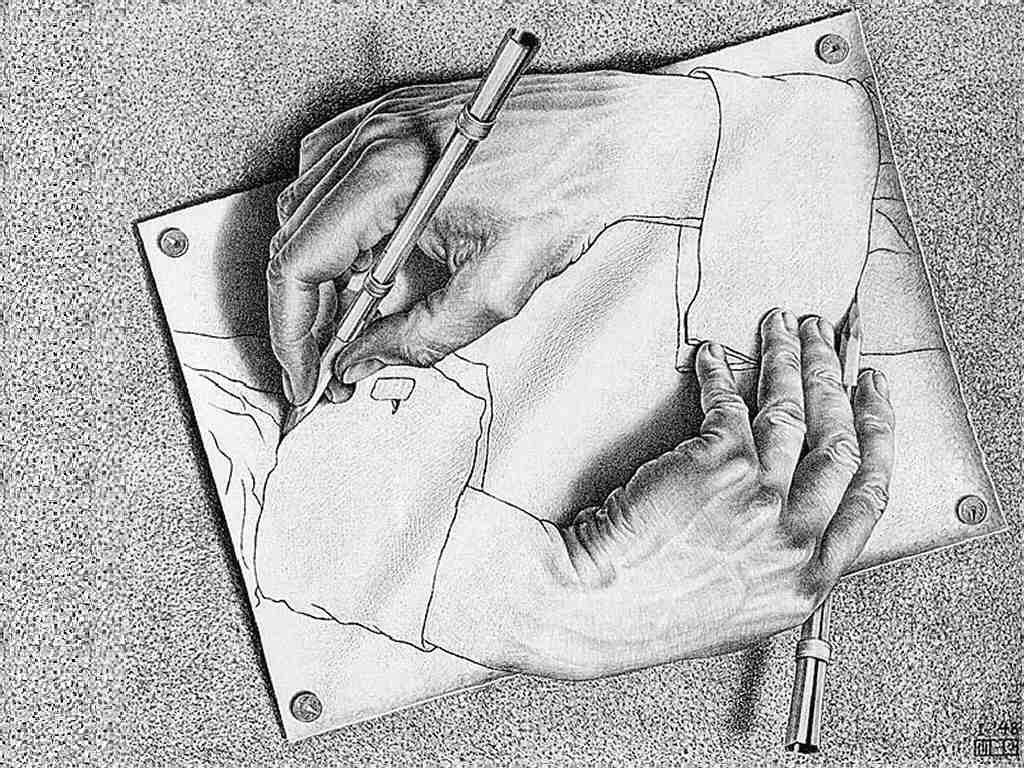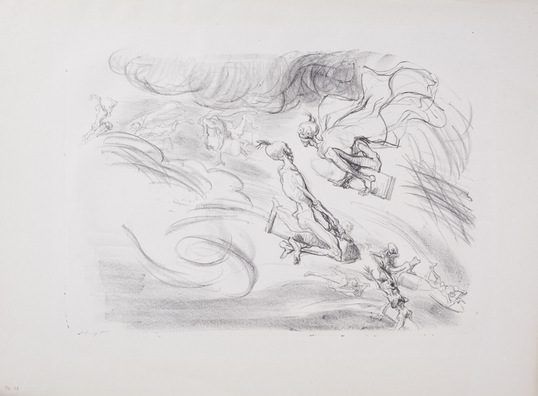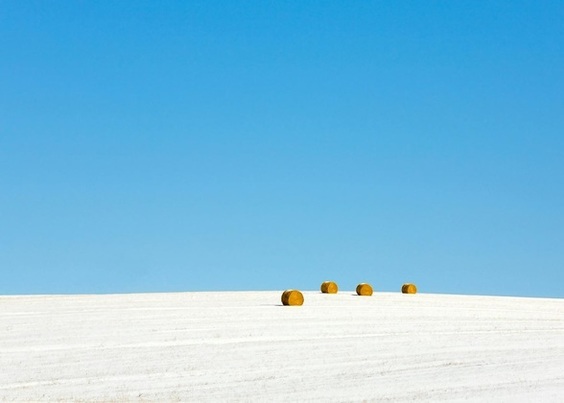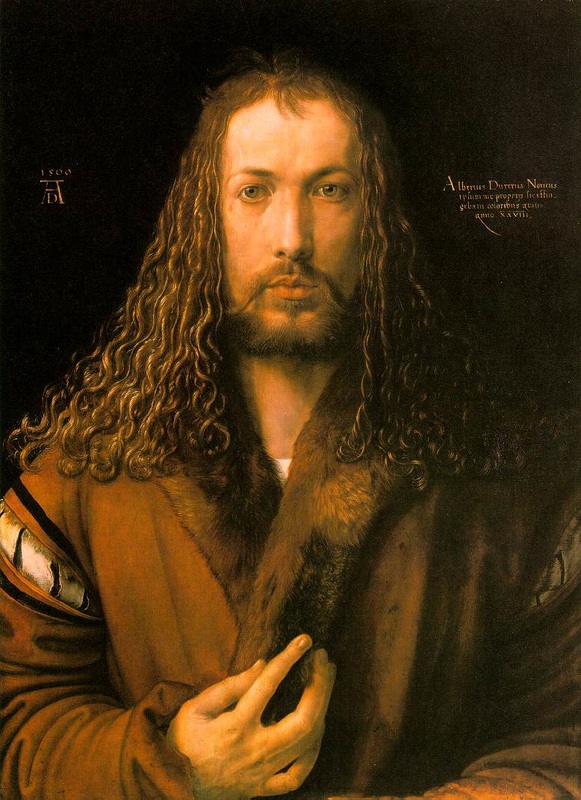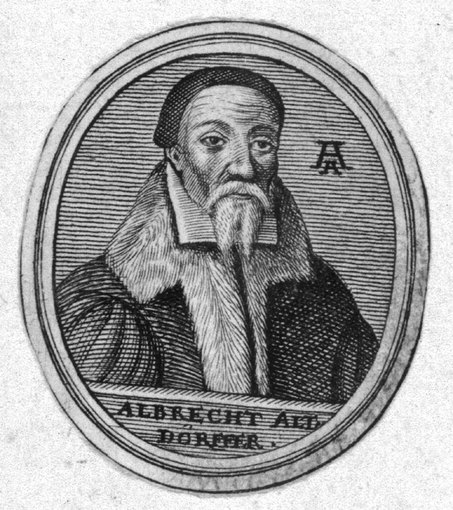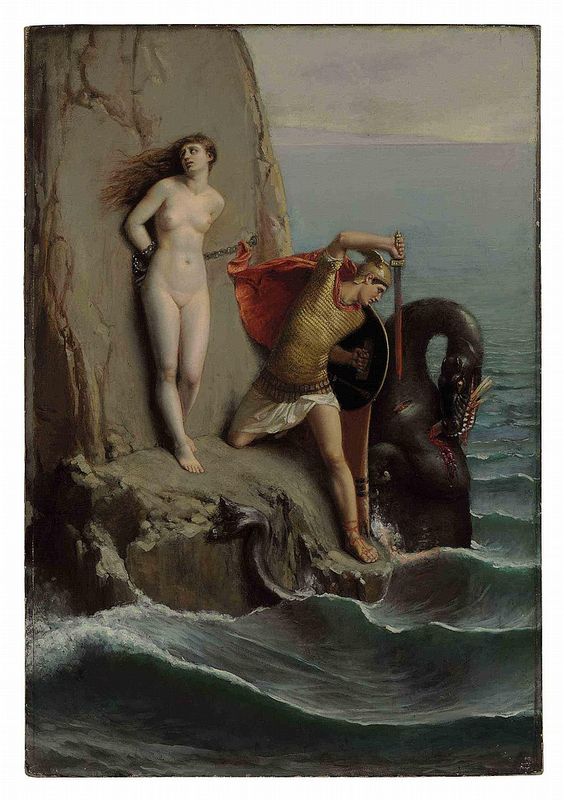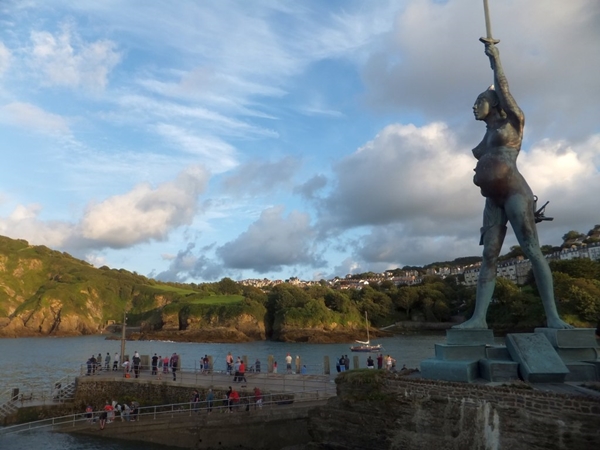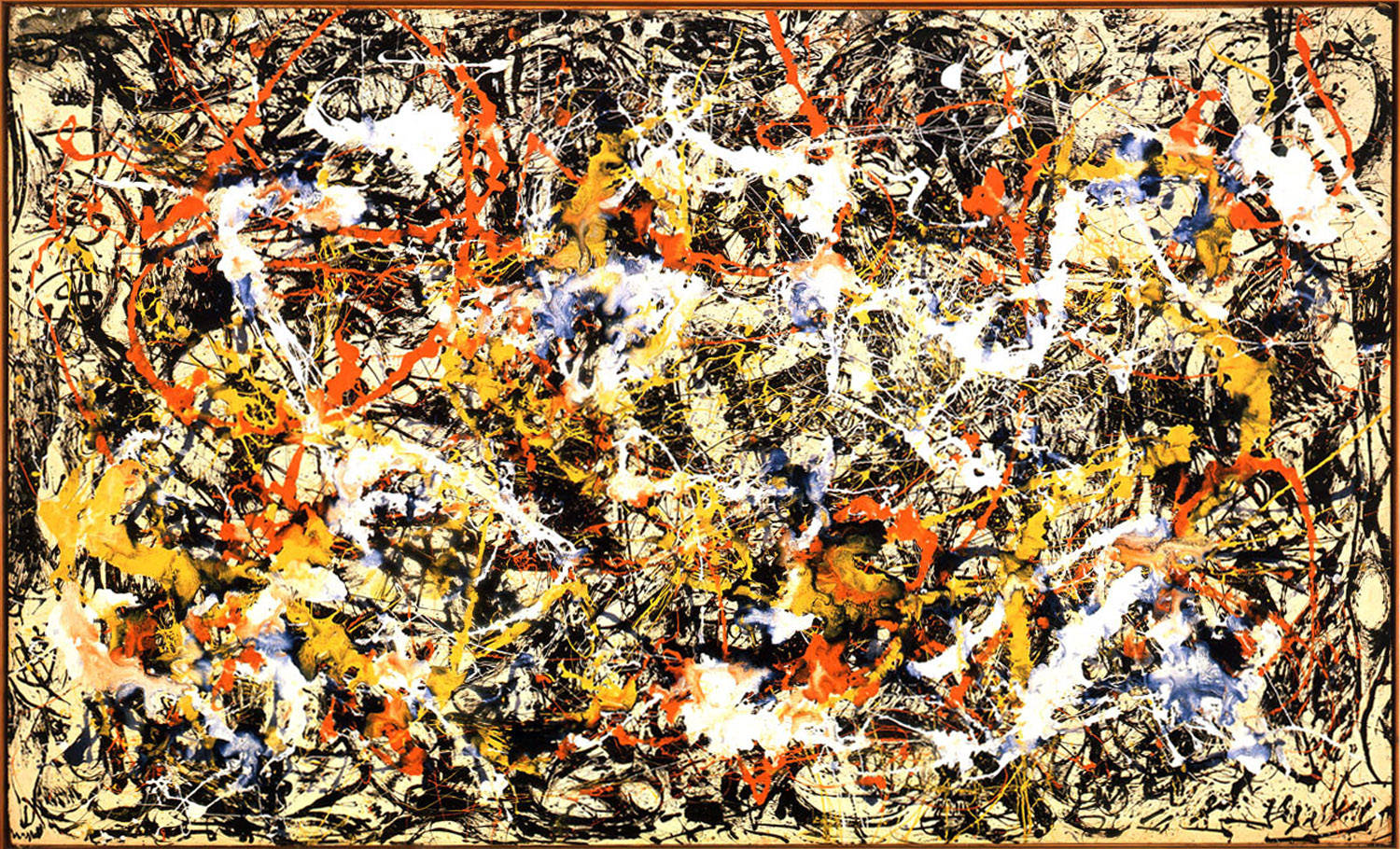|
Unearthed Inspired by a statue I found lying in long grass on the clifftop of a Greek Island. From the rock-ribbed kingdom deep below our world, breathless stone, enduring and preserving time, drawn whence whispering voices court Persephone to the open precincts where our chant is hurled round the sanctuary and out across the brine. Sculpted to a girl, elegantly arrayed: votive handmaid, on Apollo's holy ground. Deep below, a pale featureless block to haunt; now red-lipped and radiant in light's arcade, where the flowers of Kore's joy abound. Once Apollo offered loveliness his lyre, hopeful of her promise; now this seer-priestess lays upon you, statue, tribute of my craft: Song which lights the future, leaping words of fire, hallowed hands which feel, and understanding, bless. Many seasons here, shall you at peace abide - harmonious haven, though the tribes make war; hear the laughter, priest's intonement, canticles, see the rhythmic rituals and distant tide; 'till at last, slaughterous barbarians pour, cast you down and out beyond our city walls girdle of this high unvanquishable place. Broken out from sanctuary's curving arms, there, where sky-bright cliff to wine-dark water falls leaps from heaven's heat to cooler liquid's grace, to Uranus will you turn a marble face. Look! a girl, one far-seen summer day will stand at your feet, recumbent in the wild grass; know not who you are, gaze on the faded stone. She'll not tell her find, only with gentle hand touch, and bid human farewell before you pass, solvent, integrating with the mother earth loosing to the wind your memory of fame: Sky-engendered purity and cult divine soon absolved beneath the blue-height's lofty mirth, Gaia takes the artist's form, the statue's name. Pent Persephone, this maiden-stone reclaim. Ruth Asch Ruth Asch is a poet in rare moments when tranquility and inspiration co-incide. She is also the mother of four and sometimes a teacher. Her first book of poems 'Reflections' was published in 2009, and poems since in many journals on and off line such as Inkspill, Meditteranean Poetry, The Bamboo Hut, Poetry Repairs, Poetry Atlas and The Literary Yard.
1 Comment
Introducing The Luzaijc Variations by Bill Waters, in collaboration with Lorette C. Luzajic.
There are only 32 copies of this limited edition chapbook, featuring poems by Ekphrastic contributor Bill Waters and the paintings that inspired them. Available for $10, includes shipping. Click here to purchase securely through Etsy. After Gary Butte “So crossing the river and walking the path we came at last to Kumasi.” – Kamau Brathwaite Prologue: The Merchant Did he arrive at sunset’s orange hour or with the anonymous midday bustle markets busy before Sabbath-- and evening or noon height, him, stranger with strange wares looking for a berth in the fabled city. Who wants cantos from placards of bewildered widows? Totems to soft bones of decimated embryos? Androgynous puppets parading obscenely between certain jars?-- “Any credit for dark sayings of Babylon, Bhutan or islands of the sea?” Fifth Avenue needs no merchandise of prophets-- with their Greek vases their silicon tablets their first editions high speed subways and twin towers-- won’t spare a dime for this third world primitive his ark of Mesopotamian innocence his naive style. The Way Up From Ur to Haran down the Crescent Valley to Egypt back again to the terebinth trees of Mamre, and the Canaanite was then in the land. The Man came in the heat of the day on their way to the boulevards and museums the malls and stadia, suburbs and ghettos to strange women and rich men’s catamites. After, the plain of Siddim smoked like a cursed holocaust and salt pillars lined the road to Zoar. The New Age “city of gold, paved with silver, ivory altars, tables of horn.” – Kamau Brathwaite remembrances of ghosts: masks of indifferent hostility nightmares we had not imagined shame applauded across networks distractions at the frenetic tips of fingers-- privacy, thought, prayer ‘itation, Jah – banished. A Kiss “It was the bolero, Ramona, the bolero, a kiss of jazz creole lady with the Rita Dove lips, not forgetting, Maritza Andean pan flutes breathing reggae at El Solar Casa Cultural in Bucaramanga -- Celia Cruz, Lady Day, Sesenne Descartes Makeba, Piaf, Edith Lefel souls many, so many, Ramona -- lovers scarved with rainbows scattering galaxies out of sad earth raising for us pardons, benedictions, homecomings.” Doors to Infinity Turnstiles, tokens, trains eternity of rails receding Flirtatious oval eyes retreating to masques of faces The familiar loved becoming stranger You between the glass doors echoing reflections Your heart, furtive fervent, fugitive. Animal Man to Angel “the sons of God saw the daughters of men that they were fair; and they took them wives of all which they chose” – Genesis 6:2 In the chronicles of giants Fire loved a woman of earth with peacocks at her feet hibiscus through her locks and deep dimples under her laughing-- when she betrayed him (his fantasies bored her eventually) for a one-boat fisherman and his spectacular nets flung over green islands and flying fish -- their son, confused between his elements, took to the airwavesand broadcast himself Huracán furious against surf, hill defiant lamp. Epilogue: Morning Roosters
"and the feather, red rooster, reminds us he watches; " - Kamau Brathwaite A rumour, and more than a rumour, of cockerels -- from Kumasi to tents of Kedar from markets of Sichuan to Port of Spain’s Savannah -- The great Comb that raised the world to the first sun comes again with His plumes and spurs comes to take for Himself a harem of a bride from every coop and hen house of earth ̶ Egyptian Fayoumis, Japanese Bantams, Rhode Island Reds and Blue Cochins Guinea Hens and Creole Leghorns, among the bridal caravan of pullets -- He comes of course, with morning and trumpet radiance of the last sun. John R. Lee John Robert Lee is a Saint Lucian writer. His most recent publication is City Remembrances (Mahanaim, 2016). His Collected Poems 1975-2015 is forthcoming from Peepal Tree Press (UK) in 2017. Gary Butte is a Saint Lucian artist with several exhibitions to his credit. The Pen of Plenty (or A Portrait of an Artist as the Entire Universe)
Part I "Take this Boris, may it serve you well!", a booming voice commanded, as a hand, holding a shining writing implement, extended towards me. I was all of thirteen years old when the Hand from Above bestowed the Pen of Plenty upon me. " You shall be my voice! I shall speak through you with this pen. You shall be a conduit to that Other Reality, the one inhabited by Eternal Truths, Infinite Beauty and Ineffable Questions. From this pen will spring forth an inexhaustible flow of Magic, you will not be able to help begetting works of perfection, each one more perfect than the one before it. There is a price to pay. You will not be able to feel, smile, laugh, love, pursue ordinary human activities. You will only be able to write, writing alone shall be your existence. You shall move solely in the Infinite, Eternal, Universal sphere. You will capture and portray through your writings every permutation, manifestation and aspect of life, yet you shall remain cut off from mankind. This pen shall be the bathyscaphe with which you will descend to the lowest abysses, and it shall be the alpenstock with which you will ascend to the highest heights not yet scaled by mankind. The world will ostracize, scorn, misunderstand, persecute, laugh at you and it will cherish, adore, worship, celebrate you. But you will stay numb, unmoved by both love and loathing. You will not know how to be young, yet you will not grow old and will stay a man-child, for, by not partaking in the outer world, you shall be free of its deleterious effects. You will give life to an infinity of uniquely bizarre, wondrous realities, yet you yourself will be a mere metaphor, an empty shell of a shadow, never being able to feel real, concrete. The worlds you engender will be suffused with sensation and meaning, while your own outer reality will be bare, senseless and pedestrian by comparison. This pen shall be the flame that will illuminate truths as yet invisible, you will help others find their identity, will bring clarity and enlightenment to humanity, will reveal the underlying, inner structure of existence, yet you will be forever lost, confused, at odds with yourself and the world, drifting aimlessly through existence, a jellyfish in the ocean of life. This pen shall speak with a thousand voices, educing hysterical laughter, uncontrollable tears, twisting minds into Moebius strips, creating transcendental beauty that will stop others dead in their tracks, dumbfounded with awe, even if they have had just a fleeting contact with it, but you will be blind and deaf to its powers and will stay frozen inside. You will feel no pride or pleasure in your creations, for you will know that you are merely a conduit. But even though this is a Pen of Creative Cornucopia, one day it shall run out and will write no more. Consequently, writing will be the hardest and most terrifying task of your existence, for you will be forever insecure, not knowing when you no longer will be able to create any more. Yet, before that time comes, you shall be flooded with a ceaseless deluge that will demand every instant of your life and your very sanity. Once you take this pen, it can never be un-taken, you can never disown it or rid yourself of it." The voice stopped. I waited a while for it to resume, but it remained silent. Then, with childish, reckless eagerness, I extended my hand upwards, to meet the hand reaching down from above, caring not at all about the consequences. Part II The Writer sits in his room, writing at his desk. He has access to the deepest secrets and mysteries of the Universe, but the question that the whole world, from the tiniest and simplest organism upwards, seems to know the answer to, he can not solve: " Why live?" The Writer is torn apart by two contradictory thoughts that occupy his mind simultaneously and seem equally valid. He is certain that he is blind to a fundamental truth that the rest of the world is in possession of, for how else can one explain the whole world choosing life over death and existing with a purpose, something that he is not capable of. Yet he also knows that he is in possession of a fundamental truth that the rest of the world is blind to, for if it was privy to this truth, it would not be able to live in certainty. The Writer is triply trapped by his room, his mind and his pen. Occasionally, overcome by curiosity and longing, he steals a brief, wistful glimpse, through the window, of the world outside that is teeming and pulsating with life in all of its infinite variations, life that he can never be a part of and whose simple pleasures he could never enjoy or grasp the meaning of. Other times he catches sight of a sliver of the sky that is visible to him from his sitting position. But he immediately feels guilty for neglecting his sacred task and hurriedly resumes scribbling, letter after letter, word after word, sentence after sentence, in his notebooks of madness. Life passes him by, and then death passes him by too. He has no time for life and he has no time for death either. Neither life nor death can arouse his interest or get their hands on him, and just as he has forgotten all about time, so time has forgotten all about him. In any case, the Writer can not die, for the pen is still working and so he must keep on writing, for his commitment to his pen is greater than his commitment to life and death. Years, centuries, millennia, billions of years elapse. The Sun expands into a red giant and then collapses into a white dwarf. The stars are torn apart by the forces of the Universe's expansion, and the protons themselves rot into pieces. Cosmos begins to wind down, all of its energy having dissipated and turned into useless forms. Then the fabric of space-time dissolves. Still, the Writer remains writing at his desk, which is now floating in vacuum, separate from time and space. Now and then he sneaks looks at the outside world, even though nothing remains there but pure nothingness. And then, for the very first time, something leads the Writer to take a close look at the pen he was gifted with. He examines it carefully and notices the faded blue letters forming the words MADE IN CHINA etched on its side. Distant memories come flooding back to him, memories of his mother buying pens at the local supermarket, for the start of the new school year; memories of the bare walls of the bathroom that distorted the acoustics, and how he liked to speak to himself there and listen to his boy voice transforming into the stentorian voice of a man. He remembers standing in the bathroom and hearing a million voices calling out his name, then turning around and seeing all of humanity in the mirror looking back at him, as his left hand passed the pen to his right hand. The Writer now realizes that he is the Creator. Having had encompassed the Universe with his mind, the Writer expands to encompass the Universe with his body, so that the Universe and the Writer become one and the same, identical entities, coinciding precisely with one another. With quiet satisfaction the Writer slowly puts the pen down and that is how the Universe (and this story) ends, not with a bang or a whimper, but with a . Boris Glikman Editor's Note: This story was inspired by the painting The Gift, by Alex Grey. We have substituted the Escher image because we were not able to procure permission to use the original image. We would appreciate it if you would click here to view the inspiration piece. Boris Glikman is a writer, poet and philosopher from Melbourne, Australia. The biggest influences on his writing are dreams, Kafka and Borges. His stories, poems and non-fiction articles have been published in various online and print publications, as well as being featured on national radio and other radio programs. Max Slevogt, ‘Shellfire,’ 1917
The ballistic undead sit astride shells like bucking broncos. It’s a helluva ride, back and forth, barbed wire, no man’s land far below. They wave skeletally as they pass one another, bare rotten teeth, heading toward different trenches, imminent corpses who’ll join them on the return flight until no-one’s left standing down there, until everyone’s up, up in the air laughing. Jonathan Taylor Jonathan Taylor is an author, lecturer and critic from the UK. His books include the novel Melissa (Salt, 2015), and the poetry collection Musicolepsy (Shoestring, 2013). He is Senior Lecturer in Creative Writing at the University of Leicester. His website is www.jonathanptaylor.co.uk. The City Life for Me Some enjoy living in the middle of nowhere. I’d be as lonesome as a bale of hay, stranded in a snowy field, waiting for something, anything to happen. Alarie Tennille This poem was written as part of the 20 Poem Challenge. Alarie Tennille was born and raised in Portsmouth, Virginia, and graduated from the University of Virginia in the first class admitting women. She became fascinated by fine art at an early age, even though she had to go to the World Book Encyclopedia to find it. Today she visits museums everywhere she travels and spends time at the Nelson-Atkins Museum of Art in Kansas City, Missouri, where her husband is a volunteer guide. Alarie’s poetry book, Running Counterclockwise, contains many ekphrastic poems. Please visit her at alariepoet.com. Albrecht Dürer and Albrecht Altdorfer: A Genealogy
Their parents called them Albrecht. The Albrechts possessed talented eyes And hands. And patience. Blood desire And necessity: paint, silverpoint, engrave. One Albrecht was raised by a metal-man, a gold-father Named Albrecht. The other Albrecht must have had A childhood once. One saw the others’ initials on a painting: Little D nestled in the crawlspace of A. The expressive battle portrait, the unadorned thing itself, The animal studies and little landscapes. People abandoned the castle long ago. What they left behind is not important. They do not appear in the wood, by the lake or the mountain Or on the dirt road. Hands rise out of blue mist. Adam Pollak Adam Pollak is an MFA candidate and College Writing Instructor at American University, where he also serves as the poetry editor for FOLIO. His poems have most recently appeared in Innisfree Poetry Journal, Little Patuxent Review, The Allegheny Review, and Prairie Margins. He lives—quite happily—outside of Washington, D.C. with his wife and dog. Verity
The infant head crowns out, mother's arm raised in battle. Nipples strong and alert, feet anchoring her stance atop justice and precedent. Folks stroll about the seaside, as clouds break apart above her crown, wind shaking a fishing boat, yet she remains still, keeping watch. Josh Medsker Josh Medsker's work has appeared in many publications, including: The Brooklyn Rail, Red Savina Review, Into the Void, GuardianWitness (UK), and The Review Review. He can be found online at www.joshmedsker.com. Convergence, 1952
Cluttered crowd of colours comingling from all directions blues yellows from each corner reds greens splashing spilling squirting from every angle cardinal virtues and the seven deadly sins a chorus of crashing textures and hues black white love hate good versus evil a discordant chorus of disparate dissonance like the infinite chaos of the early universe the entire astral spectrum captured, contained within one carnivorous canvas appearing to the uninitiated eye as if anyone with sticks and brushes cans of old paint and a few drinks could create a splatter similar to this – but just try it. Michael Estabrook Michael Estabrook is a recently retired baby boomer child-of-the-sixties poet freed finally after working 40 years for “The Man” and sometimes “The Woman.” No more useless meetings under florescent lights in stuffy windowless rooms. Now he’s able to devote serious time to making better poems when he’s not, of course, trying to satisfy his wife’s legendary Honey-Do List. |
The Ekphrastic Review
COOKIES/PRIVACY
This site uses cookies to deliver your best navigation experience this time and next. Continuing here means you consent to cookies. Thank you. Join us on Facebook:
July 2024
|
